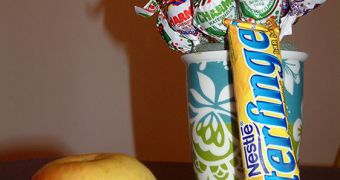For quite some time now, investigations have been suggesting that children are extremely sensitive to targeted ads from various types of companies, and that their diets were ultimately out of their parents' hands. A new study from the Texas A&M International University, in Laredo, Texas, shows this is false.
Parents have been complaining about their children's behavior when it comes to the stuff they eat for many years. The adults say that their kids are way too influenced by ads created specifically to influence the little ones.
As such, the level of influence parents have on their own children was low, the thinking went. But the recent investigation proved that ads and parents have highly-similar levels of influence on children's diet, which implies that adults should step up, and take a more active role in controlling food intakes.
In addition, the obvious course of action for parents to take would be to reduce their kids' exposure to TV, where various companies are in the habit of broadcasting targeted ads right in the middle of children-oriented programs, such as cartoons.
“The take-home message we found was: No. Parents are not helpless when it comes to what their kids say they want to eat,” research team leader Christopher Ferguson says. He holds an appointment as a professor of behavioral sciences at the university, MEDILL reports.
The expert says that parents should not avoid taking responsibility for their kids' health, and stop shifting all the blame to the media. TV ads are not the primary driving factor behind appealingly-high childhood obesity rates and poor food choices.
“We wanted to test to see if there was anything behind this idea that kids are influenced by marketing. And we also wanted to see if there was any way to reverse the effects of the advertising. We wanted to answer the question of whether or not parents can undo bad media influence,” Ferguson explains.
Details of the new investigation appear in the latest issue of the esteemed medical Journal of Pediatrics. The team says that they devised an interesting experimental setup in order to test their theories, which involved 75 children watching cartoons for 20 minutes.
A 1-minute commercial break showed ads for apple slices or French fries, and then each parent in the study was given a script to read to their kids. The adults were encouraged to recommend either the healthy snack, of leave the decision entirely up to their 3- to 8-year-olds.
“What we found was that while the effects of the ads were quite strong in the sense that children tended to choose whichever food it was they saw in the commercial, we also saw that if a parent recommended eating the healthier snack to a child who had seen the commercial for the unhealthy one, many of the children decided to choose the apples instead of the fries,” Ferguson concludes.

 14 DAY TRIAL //
14 DAY TRIAL //